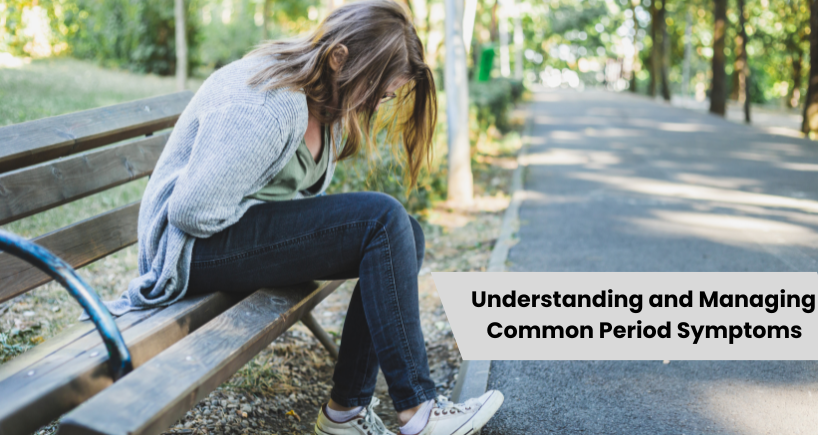
Understanding and Managing Common Period Symptoms
Understanding and Managing Common Period Symptoms
Experiencing period symptoms is a natural and normal part of a woman's menstrual cycle. These symptoms can vary greatly from person to person and cycle to cycle. Some women breeze through their periods with minimal discomfort, while others face a range of symptoms that can disrupt their daily lives. In this article, we will explore the most common period symptoms, their causes, and effective strategies for managing them.
Menstrual Cramps
Menstrual cramps, also known as dysmenorrhea, are perhaps the most widely recognized period symptom. These cramps are caused by the uterus contracting to shed its lining. The contractions can cause pain ranging from mild discomfort to intense pain. To manage menstrual cramps:
- Apply a heating pad to your lower abdomen.
- Take over-the-counter pain relievers like ibuprofen.
- Engage in gentle exercise or yoga to promote blood flow.
Bloating and Abdominal Discomfort
Many women experience bloating and abdominal discomfort during their periods. Hormonal fluctuations can lead to water retention and gas buildup. To reduce bloating:
- Consume a balanced diet rich in fruits, vegetables, and whole grains.
- Limit your intake of salty and processed foods.
- Stay hydrated to encourage fluid balance.
Fatigue and Mood Changes
Fluctuating hormones can also impact your mood and energy levels. Some women experience mood swings, irritability, and fatigue before and during their periods. To manage these symptoms:
- Prioritize sleep and ensure you're getting enough rest.
- Engage in stress-relieving activities such as meditation or deep breathing.
- Stay physically active to boost your mood and energy.
Headaches
Headaches, including migraines, can be triggered by hormonal changes. These headaches might occur before or during your period. To alleviate headache symptoms:
- Rest in a dark, quiet room.
- Stay hydrated and avoid caffeine and alcohol.
- Consider using over-the-counter pain relievers.
Breast Tenderness
Breast tenderness or soreness is another common symptom. Hormonal fluctuations can cause your breasts to feel swollen, tender, or painful. To manage breast tenderness:
- Wear a supportive and comfortable bra.
- Apply a warm compress to your breasts.
- Limit caffeine intake, which might exacerbate tenderness.
Back Pain
Back pain during your period can be attributed to uterine contractions and hormonal changes. To alleviate back pain:
- Use a heating pad or hot water bottle on your lower back.
- Practice good posture and engage in gentle stretching.
- Consider low-impact exercises like swimming or walking.
Nausea and Digestive Issues
Some women experience nausea, vomiting, or digestive disturbances during their periods. To manage these symptoms:
- Eat small, frequent meals to prevent nausea.
- Avoid greasy and heavy foods.
- Stay hydrated and sip on herbal teas like ginger or peppermint.
Seeking Medical Advice
If your period symptoms are severe, persistent, or significantly impact your quality of life, it's important to consult a healthcare professional. Certain conditions, such as endometriosis or polycystic ovary syndrome (PCOS), can cause more intense symptoms that require medical attention.
Remember, every woman's body is unique, and what works for one person might not work for another. It's essential to listen to your body, make adjustments to your lifestyle as needed, and prioritize self-care during your menstrual cycle.
Categories
Clear allMeet the doctor

- Obstetrics and Gynaecology | Obstetrics and Gynaecology
-
30 Years
-
1500



















